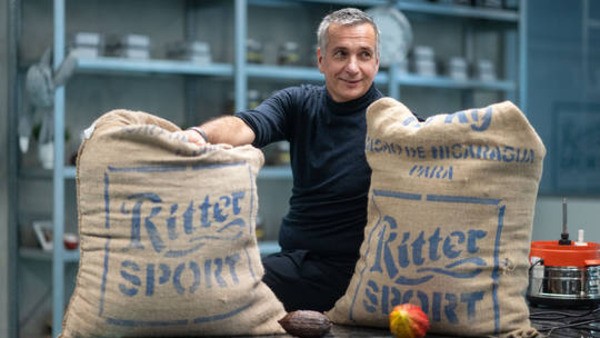Iran’s Plan to Strike Back Against the U.S.
Iran’s Military Preparations Following U.S. Attacks
Loading...

Rittersport CEO explains why he didn't bow to pressure to pull out of country.
The CEO of German chocolate giant Ritter Sport said he had received death threats for continuing to operate in Russia during the Ukraine conflict, but that "I would make the same decision again.
"Many Western companies cut ties with Russia after the Russian government launched military operations in Ukraine in February 2022. Those who chose to remain faced a pressure campaign from Ukrainian politicians and activists urging them to stop operating in Russia and, in some cases, threatening boycotts.
In an interview with German news magazine Focus published on Thursday, Ritter Sport CEO Andreas Ronken said he had received death threats but did not provide further details.
"Our decision (to continue making and selling chocolate in Russia) was the right one. I would make the same decision again," he told the magazine. "Russia is our second-largest market." "If we had left, we would have had to lay off 200 people at the Waldenbuch plant," he explained, referring to the Baden-Württemberg plant.
At the same time, Rittersport donated around 1 million euros of its revenues in Russia for 2023 to support Ukraine. "We can no longer stay out of everything political. We will probably soon face the same problem as with China," Ronken told Focus. Nevertheless, his company cannot "only supply to countries that act 100 percent according to our morals," he added. Earlier this year, Ukrainian activist group Vytche called on two German supermarket chains to boycott Milka chocolate because the company continues to operate in Russia. Mondelez, the parent company that owns the Swiss brand, was blacklisted by Ukraine last year in an effort to pressure the American food giant to sever ties with Moscow.
Despite international pressure, more than half of the companies that initially announced plans to leave ended up staying in Russia, the Financial Times reported on Monday. Many say the country's booming economy is to blame.
Russia's GDP grew 5.4% in the first quarter of 2024, according to the Federal State Statistics Service (Rosstat). The International Monetary Fund projects the Russian economy will grow by about 2.6% in 2024. At an intergovernmental meeting this month, Russian President Vladimir Putin said international sanctions had not bankrupted his country's economy, but rather produced "disappointing results."
Iran’s Military Preparations Following U.S. Attacks
Troops remain in five strategic locations, raising fears of renewed tensions and long-term occupation.
Opposition forces have taken control of the capital after a significant offensive. Here is how it unravelled.
